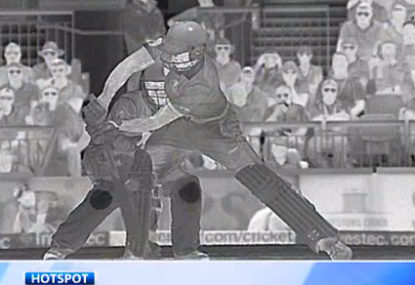Virat Kohli watches in complete shock as Will Jacks goes from 44 to his ton in just two overs
The Englishman got RCB past the 200 target set by Gujarat with four overs to spare!

One of the most frustrating things we have witnessed throughout the current Ashes series has been the abuse of the DRS by players and officials.
The technology was introduced with good intentions, but it has been ineffective in eliminating on-field controversies.
The use of slowed-down video footage by the third umpire has proven a huge success when judging run-outs and stumpings. In these cases the third umpire is granted the authority to make a decision.
But the DRS is a different beast and allows on-field decisions to be disputed by the players then reviewed by the third umpire and potentially reversed if the evidence is considered conclusive.
This all sounds fine until we realise the limitations of the DRS technology and the psychology at play.
Firstly, when using the hawke-eye, snicko and hot-spot technologies, there are 50-50 incidents where the DRS evidence is deemed too fuzzy and inconclusive.
In these cases the DRS will revert to an ‘umpires call’ which basically throws the decision back to the on-field umpire and provides no reassurance whatsoever.
Secondly, it is also important to recognise how the DRS influences the decisions of the on-field umpires.
Prior to the DRS, umpires took the consistent approach of giving batsmen the benefit of the doubt when judging a potential dismissal which meant that the number of lucky/unlucky 50-50 calls would tend to even out over the course of the game.
But with umpires coming under increased pressure, they are now more inclined to give a batsman out in the case of a 50-50 decision, which means that the ‘benefit of the doubt’ that once existed for batsmen has now swung in favour of the bowling side.
Surely the technology was meant to eliminate this doubt all together.
The LBW dismissal is classic example, where we are constantly seeing batsman given out for deliveries that would barely shave the top the leg stump, but not over-turned by the third umpire due to the original on-field umpires call.
The only solution is for the DRS to be fully utilised as an impartial umpire, meaning that it must be capable of making a decision, or else not used at all.